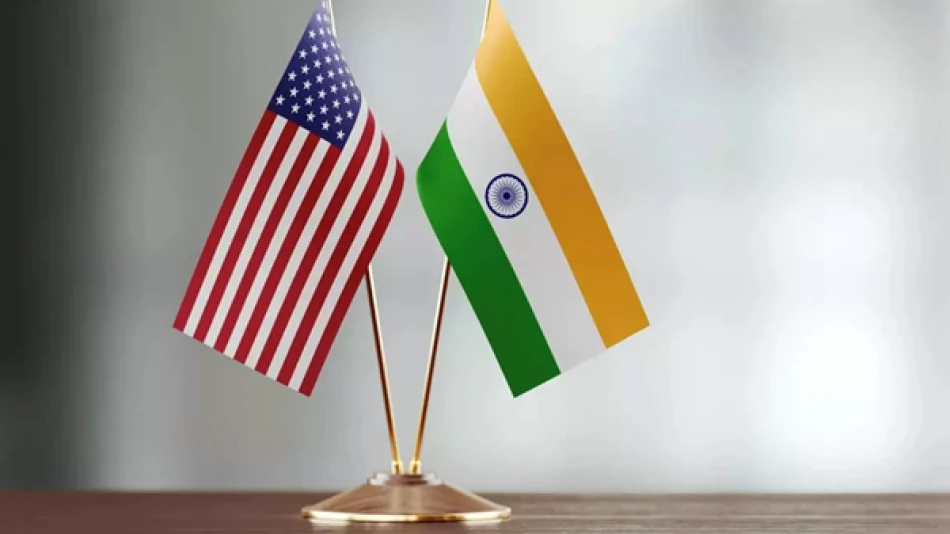
Indian Delegation Arrives in the U.S. to Negotiate Trade Deal
India Rushes to Secure Trade Deal as Trump's Tariff Deadline Looms
India has dispatched a high-level trade delegation to Washington for urgent negotiations on a bilateral trade agreement, as New Delhi scrambles to avoid punitive tariffs threatened by President Donald Trump. With less than a month before Trump's August 1 deadline for higher duties, India remains one of the few major economies still attempting to strike a deal with an increasingly protectionist United States.
High-Stakes Negotiations Intensify
Two Indian government sources confirmed Monday that the trade delegation had arrived in Washington for fresh talks. India's chief trade negotiator Rajesh Agarwal is expected to join the discussions Tuesday, signaling the urgency Delhi places on reaching an agreement before Trump's tariff threats materialize.
Indian Commerce Minister Piyush Goyal struck an optimistic tone during a New Delhi event Monday, describing the bilateral trade talks as progressing rapidly. However, he emphasized that India would only sign agreements serving its national interests, not merely to meet Trump's artificial deadlines.
India's Precarious Position in Trump's Trade War
India's situation highlights the broader challenge facing emerging economies under Trump's aggressive trade policies. While China bears the brunt of the trade war through escalating tariff battles, India faces its own vulnerabilities as a major services exporter and manufacturing hub.
The timing is particularly critical for India's technology sector, which has thrived on H-1B visa programs and cross-border service delivery to US companies. Any deterioration in trade relations could impact India's $150 billion IT services industry and its ambitious manufacturing goals under the "Make in India" initiative.
Limited Options for Compromise
Unlike China's massive trade surplus with the US, India's trade relationship presents different negotiating dynamics. India runs a smaller goods trade surplus with America but maintains a significant services trade advantage, particularly in IT and business process outsourcing.
The challenge for negotiators lies in balancing Trump's demands for reduced trade deficits with India's development priorities. Previous discussions have centered on agricultural market access, pharmaceutical regulations, and digital trade rules – areas where both sides have shown flexibility.
Market Implications and Investor Concerns
Indian markets have remained relatively resilient compared to other emerging economies caught in Trump's trade crosshairs, but prolonged uncertainty could impact investor confidence. The rupee has already faced pressure from broader trade war concerns, and any escalation with the US could accelerate capital outflows.
For multinational corporations using India as a manufacturing base for US exports, the stakes are particularly high. Companies in textiles, pharmaceuticals, and automotive components could face immediate cost pressures if negotiations fail and tariffs materialize.
The Broader Strategic Context
Beyond immediate trade concerns, these negotiations reflect deeper strategic calculations. India represents a key partner in US efforts to counter China's growing influence in Asia, making a complete breakdown in economic relations unlikely despite Trump's rhetoric.
However, India's insistence on protecting its national interests suggests limits to how far Delhi will bend to accommodate Washington's demands. This pragmatic approach may serve India well in the long term, even if it complicates short-term negotiations under Trump's deadline pressure.
Most Viewed News

 Layla Al Mansoori
Layla Al Mansoori






